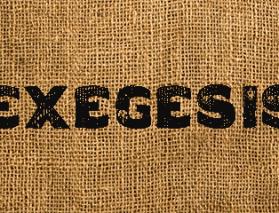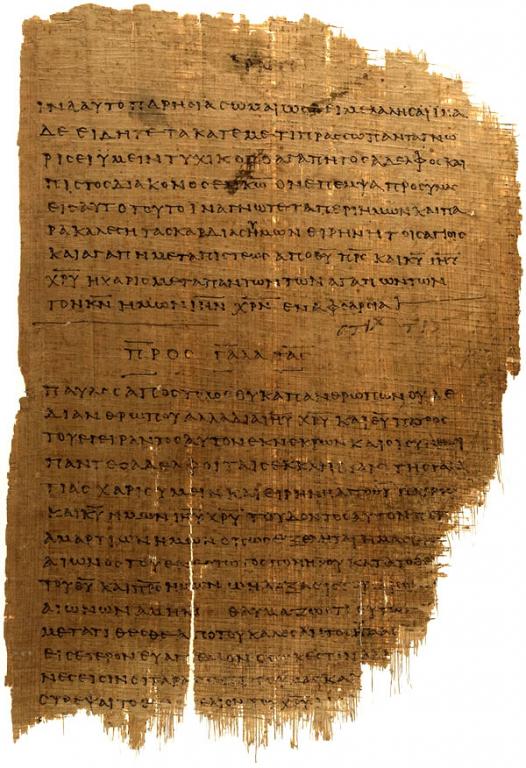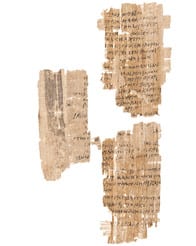SBL 2015 is coming up! Here are some sessions that caught my eye – esp excited about the review session for John Barclay’s Paul and the Gift.

Saturday
S21-118
Early Jewish Christian Relations; Paul Within Judaism
Joint Session With: Early Jewish Christian Relations, Paul Within Judaism
11/21/2015
9:00 AM to 11:30 AM
Room: Baker (Atlanta Conference Level) – Hyatt
Theme: Review of Paul within Judaism: Restoring the First-Century Context to the Apostle, Fortress 2015, ed. by Mark Nanos and Magnus Zetterholm
Pamela Eisenbaum, Iliff School of Theology, Presiding (5 min)
James Crossley, University of Sheffield, Panelist (15 min)
Christine Hayes, Yale University, Panelist (15 min)
Amy-Jill Levine, Vanderbilt University, Panelist (15 min)
Shelly Matthews, Brite Divinity School (TCU), Panelist (15 min)
Emma Wasserman, Rutgers University, Panelist (15 min)
Break (5 min)
Discussion (65 min)
P21-127
Institute for Biblical Research
11/21/2015
9:00 AM to 11:30 AM
Room: A602 (Atrium Level) – Marriott
Theme: IBR Unscripted
This session of the IBR annual meeting offers Biblical Scholars from throughout the academy the opportunity to present their new and innovative ideas in an engaging forum inspired by the famous TED talks. Scholars will speak without notes and are encouraged to use a variety of media to help the audience interact with their ideas. A generous discussion time will follow each presentation and refreshments will be served. For further information see https://www.ibr-bbr.org
Katie Heffelfinger, Church of Ireland Theological Institute, Presiding
Peter Enns, Eastern University
On Not-Knowing When Knowing is All You Know (17 min)
Discussion (17 min)
Break (17 min)
Ruth Anne Reese, Asbury Theological Seminary
Remembering the Future, Shaping the Past: Memory, Narrative, and Identity (17 min)
Discussion (17 min)
Break (7 min)
Scott Hafemann, University of St. Andrews
The Unity of the Bible? Really? (17 min)
Discussion (17 min)
Break (17 min)
Break (7 min)
S21-131
John, Jesus, and History
11/21/2015
9:00 AM to 11:30 AM
Room: International 5 (International Level) – Marriott
Theme: Portraits of Jesus in the Gospel of John
In 2013 the John, Jesus, and History group began a series on Portraits of Jesus in the Gospel of John. It explores roles ascribed to Jesus in the Fourth Gospel, which also appear in other early Christian sources. Two years ago we considered Jesus as rabbi, prophet, and apocalyptic Son of Man. This year we continue with Jesus as healer, controversialist, Davidic Messiah, and Son of God.
Craig R. Koester, Luther Seminary, Presiding (5 min)
Graham H. Twelftree, Regent University
Jesus as Healer in the Gospel of John (30 min)
Tom Thatcher, Cincinnati Christian University
Jesus as Controversialist: Media-Critical Perspectives on the Historicity of the Johannine Sabbath Controversies(30 min)
Matthew Novenson, University of Edinburgh
Jesus as Messiah: The Unlikely Trove of Messiah Traditions in the Gospel of John (30 min)
Alicia D. Myers, Campbell University
Jesus as God’s Son: Blending Voices and Memory to Hear John’s Word (30 min)
Discussion (25 min)
S21-147
Synoptic Gospels
11/21/2015
9:00 AM to 11:30 AM
Room: Marquis A-B (Marquis Level) – Marriott
Theme: Panel Review of Francis Watson, Gospel Writing: A Canonical Perspective (Eerdmans, 2013)
Robert Derrenbacker, Thorneloe University, Presiding
Francis Watson, Durham University, Introduction (10 min)
John Kloppenborg, University of Toronto, Panelist (15 min)
Mark Matson, Milligan College, Panelist (15 min)
Margaret Mitchell, University of Chicago, Panelist (15 min)
Francis Watson, Durham University, Respondent (15 min)
Discussion (80 min)
S21-211
Biblical Ethics
11/21/2015
1:00 PM to 3:30 PM
Room: Hanover D (Exhibit Level) – Hyatt
Theme: The Moral Vision of the Bible – A Methodological Discussion
Volker Rabens, Friedrich-Schiller-Universität Jena, Presiding
Eryl W. Davies, Prifysgol Bangor – Bangor University
The Moral Vision of the Bible: A Hebrew Bible / Old Testament Approach (25 min)
Discussion (5 min)
Todd Still, Baylor University, Respondent (25 min)
Discussion (5 min)
David G. Horrell, University of Exeter
The Moral Vision of the Bible: A New Testament Approach (25 min)
Discussion (5 min)
Jacqueline Grey, Alphacrucis, Respondent (25 min)
Discussion (35 min)
S21-227
John, Jesus, and History
11/21/2015
1:00 PM to 3:30 PM
Room: Courtland (Atlanta Conference Level) – Hyatt
Theme: A Review of the John, Jesus and History Project
The John, Jesus, and History project has been contributing to the discussion of the Fourth Gospel and questions of history since 2002. This year a panel will reflect on the work that has been done, the contributions that have been made, and the questions that might set directions for the future.
Helen Bond, University of Edinburgh, Presiding (5 min)
Jan van der Watt, Radboud Universiteit Nijmegen
A Critical Appraisal of Challenging and Critical Views on the Historicity of John (30 min)
Andrew Lincoln, University of Gloucestershire
What is “History” in John, Jesus and History? (30 min)
Michael Labahn, Martin-Luther-Universität Halle-Wittenberg
The “Johannine Lens” and Many Current Lenses on “John and Jesus”: A Review of John, Jesus and History Volume III (30 min)
Mark Goodacre, Duke University
“Strange, Restless and Unfamiliar”: The Character of the Fourth Gospel in the John, Jesus and History Project (30 min)
Catrin Williams, Prifysgol Cymru, Y Drindod Dewi Sant – University of Wales, Trinity Saint David, Respondent (10 min)
Discussion (15 min)
S21-237
Pauline Epistles
11/21/2015
1:00 PM to 3:30 PM
Room: 406 (Level 4) – Hilton
Theme: Reviews of J. A. Harrill, Paul the Apostle and M. Novenson, Christ Among the Messiahs
Emma Wasserman, Rutgers University, Presiding
John Barclay, University of Durham, Panelist (20 min)
Laura Dingeldein, University of Illinois at Chicago, Panelist (20 min)
Paula Fredriksen, Hebrew University of Jerusalem, Panelist (20 min)
Break (5 min)
J. Albert Harrill, Ohio State University, Respondent (25 min)
Matthew Novenson, University of Edinburgh, Respondent (25 min)
S21-249
Theological Interpretation of Scripture
11/21/2015
1:00 PM to 3:30 PM
Room: A602 (Atrium Level) – Marriott
Theme: Trinity in/and the Bible
All papers will be read in their entirety.
Brent Laytham, Saint Mary’s Seminary and University, Presiding
Murray Rae, University of Otago
Biblical Foundations of a Trinitarian Hermeneutic (20 min)
Discussion (5 min)
Mark S. Gignilliat, Beeson Divinity School, Samford University
Wish Fulfillment or Real Presence? The Old Testament’s Trinity (20 min)
Andrea D. Saner, Eastern Mennonite University
Trinitarian Judgments in/and the Book of Exodus (20 min)
Discussion (10 min)
Break (5 min)
Matthew Bates, Quincy University
Christology of Divine Identity? Septuagintal Dialogues in the New Testament as Trinitarian Critique (20 min)
Wesley Hill, Trinity School for Ministry
Paul and the Narratable Divine Identity (20 min)
Discussion (10 min)
Discussion (20 min)
Sunday
S22-126
Jewish-Christian Dialogue and Sacred Texts
11/22/2015
9:00 AM to 11:30 AM
Room: Grand Ballroom B (Level 2) – Hilton
Theme: A Review of Amy-Jill Levine’s Short Stories by Jesus: The Enigmatic Parables of a Controversial Rabbi
Adele Reinhartz, Université d’Ottawa – University of Ottawa, Presiding
Adele Reinhartz, Université d’Ottawa – University of Ottawa, Introduction (5 min)
Adam Gregerman, Saint Joseph’s University, Panelist (25 min)
Luke Timothy Johnson, Emory University, Panelist (25 min)
Annette Merz, Protestant Theological University Amsterdam, Panelist (25 min)
David Sandmel, Anti-Defamation League, Panelist (25 min)
Amy-Jill Levine, Vanderbilt University, Respondent (25 min)
Discussion (20 min)
S22-147/A22-121
Theological Interpretation of Scripture
11/22/2015
9:00 AM to 11:30 AM
Room: A704 (Atrium Level) – Marriott
Theme: Bonhoeffer as Theological Interpreter
This session is co-sponsored with the Bonhoeffer: Theology and Social Analysis Group (AAR). Papers will be read in their entirety. This session investigates aspects of Bonhoeffer as a theological interpreter of Christian scripture. Papers explore Bonhoeffer’s own exegetical practice and its application in particular cases, examine the role of exegesis in the construction of Bonhoeffer’s own distinctive theological positions, and consider Bonhoeffer’s understanding of scripture and its consequences for contemporary debates about theological exegesis.
Myk Habets, Carey Baptist College, Presiding (5 min)
R. Walter Moberly, University of Durham
Bonhoeffer’s “Creation and Fall” Revisited (25 min)
Tyler Atkinson, Bethany College (KS)
Bonhoeffer, Qoheleth, and the “Natural Joy of Bodily Life” (25 min)
Discussion (10 min)
Break (5 min)
Chris Dodson, University of Aberdeen
“The Person Who Receives Blessing . . . Must Also Suffer Much”: Dietrich Bonhoeffer, Wilhelm Herrmann, and a Hermeneutic of Suffering (25 min)
Derek W. Taylor, Duke University
Nonreligious and yet Theological: Bonhoeffer’s Interpretation in a World Come of Age (25 min)
Discussion (10 min)
Discussion (20 min)
S22-235
Pauline Soteriology
11/22/2015
1:00 PM to 3:30 PM
Room: A602 (Atrium Level) – Marriott
Theme: Paul, Poverty, and the Powers
Richard Hays, Duke University, Presiding
Bruce W. Longenecker, Baylor University
Malignant Forces, Perpetual Poverty, and the Body of Christ: Theologizing toward an Eschatological Reality (30 min)
Robert Moses, High Point University
Paul, Poverty, and the Powers: The Body of Christ as Response (30 min)
Break (10 min)
A. Grieb, Virginia Theological Seminary, Respondent (15 min)
Luke Bretherton, Duke University, Respondent (15 min)
Discussion (50 min)
S22-305
Bible and Emotion
11/22/2015
4:00 PM to 6:30 PM
Room: A706 (Atrium Level) – Marriott
Theme: Toward a Biblical Theology of Joy
Matthew Croasmun, Yale University, Presiding
Gary Anderson, University of Notre Dame, Panelist (25 min)
Samuel Balentine, Union Presbyterian Seminary, Panelist (25 min)
Stephen Barton, University of Durham, Panelist (25 min)
Michal Beth Dinkler, Yale Divinity School, Panelist (25 min)
Miroslav Volf, Yale University, Respondent (25 min)
Discussion (25 min)
P22-318
GOCN Forum on Missional Hermeneutics
11/22/2015
4:00 PM to 6:30 PM
Room: Marquis A-B (Marquis Level) – Marriott
Theme: Review Panel Discussion of Michael J. Gorman’s book, Becoming the Gospel: Paul, Participation, and Mission (Eerdmans, 2015)
As a leading voice among Pauline scholars, Michael J. Gorman has written a number of significant books and articles on Paul’s theology in recent years, including Cruciformity: Paul’s Narrative Theology of the Cross (2001) and Inhabiting the Cruciform God (2009). His most recent contribution, Becoming the Gospel: Paul, Participation, and Mission (Eerdmans, 2015), extends and develops some of the themes highlighted initially in earlier works, and places particular emphasis on mission as an interpretive rubric for the Pauline epistles—an outgrowth, in part, of his work with the GOCN Forum on Missional Hermeneutics. In the introduction to Becoming the Gospel, Gorman calls his “affiliation with the Forum” “one of the most important professional developments for me in recent years,” noting that “learning to read Paul missionally—not merely as the quintessential ‘missionary’ but as a formator of missional communities—has been an exhilarating experience” (p. 10). Specifically, Gorman argues that “theosis—Spirit-enabled transformative participation in the life and character of God revealed in the crucified and resurrected Messiah Jesus—is the starting point of mission and is, in fact, its proper theological framework” (p. 4). Please join us for what promises to be a fascinating panel discussion—including responses by a fellow Pauline scholar, a congregational pastor, a missiologist, and a theologian—followed by an open-ended conversation about the missiological dimensions of Paul’s theology as illuminated in Gorman’s work.
Sylvia Keesmaat, Trinity College, University of Toronto, Presiding (5 min)
Michael J. Gorman, Saint Mary’s Seminary and University, Panelist (20 min)
J. Ross Wagner, Duke University, Panelist (15 min)
Eunice McGarrahan, First Presbyterian Church, Colorado Springs, Panelist (15 min)
Break (5 min)
George Hunsberger, Western Theological Seminary, Panelist (15 min)
John Franke, Evangelische Theologische Faculteit, Leuven, Panelist (15 min)
Michael Gorman, Saint Mary’s Seminary and University, Panelist (20 min)
Discussion (40 min)
Monday
| S23-132
Paul Within Judaism
11/23/2015
9:00 AM to 11:30 AM
Room: Marquis C (Marquis Level) – Marriott
Theme: For Paul, Do Jews Have to Become Christians to be Saved?
Paula Fredriksen, Hebrew University of Jerusalem, Presiding (5 min)
John Marshall, University of Toronto
Deixis and Scope: Reading Romans in Time and Place (25 min)
Mark D. Nanos, University of Kansas – Lawrence
Are Jews Outside of the Covenants if Not Confessing Jesus as Messiah?: Questioning the Questions, the Options for the Answers Too (25 min)
Jason Staples, University of North Carolina at Chapel Hill
Who is Israel? Understanding Paul’s Restoration Eschatological Hopes (25 min)
Larry Hurtado, University of Edinburgh, Respondent (25 min)
Break (5 min)
Discussion (40 min) |
|
S23-133
Pauline Soteriology
11/23/2015
9:00 AM to 11:30 AM
Room: Marquis A-B (Marquis Level) – Marriott
Theme: Review of John Barclay, Paul and the Gift (Eerdmans 2015)
Alexandra Brown, Washington and Lee University, Presiding
Joel Marcus, Duke University, Panelist (20 min)
Margaret Mitchell, University of Chicago, Panelist (20 min)
Miroslav Volf, Yale University, Panelist (20 min)
Break (10 min)
John Barclay, University of Durham, Respondent (40 min)
Discussion (40 min)
| S23-230
Matthew
11/23/2015
1:00 PM to 3:30 PM
Room: 210 (Level 2) – Hilton
Theme: A Dialogue with Francis Watson’s Gospel Writing: A Canonical Perspective
Joel Willitts, North Park University, Presiding
Mark Goodacre, Duke University
What Does Thomas Have to Do with Q? The Afterlife of a Sayings Gospel (20 min)
Richard A. Burridge, King’s College – London
Ancient Biography, Matthew’s Genre and the Development of the Canonical Collection (20 min)
Jonathan Pennington, Southern Baptist Theological Seminary
Theological Epistemology in the Gospel according to Matthew: A Watsonian “Canonical Perspective” (20 min)
Jens Schroeter, Humboldt-Universität zu Berlin – Humboldt University of Berlin
The Place of Matthew’s Gospel among the (Canonical and Apocryphal) Gospels in the Second Century (20 min)
Break (5 min)
Francis Watson, University of Durham, Respondent (25 min)
Discussion (30 min) |
|
S23-244
Systematic Transformation and Interweaving of Scripture in 1 Corinthians
11/23/2015
1:00 PM to 3:30 PM
Room: International 10 (International Level) – Marriott
Theme: Scripture and Eschatology in 1 Corinthians
Erik Waaler, NLA University College, Presiding
Raymond Collins, Brown University, Panelist (15 min)
Matthew Malcolm, Trinity Theological College (Perth), Respondent (10 min)
Discussion (25 min)
Break (2 min)
Ben Witherington, Asbury Theological Seminary, Panelist (15 min)
Roy Ciampa, Nida Institute for Biblical Scholarship at the American Bible Society, Respondent (10 min)
Discussion (25 min)
Break (2 min)
Craig Keener, Asbury Theological Seminary, Panelist (15 min)
Linda Belleville, Grand Rapids Theological Seminary, Respondent (10 min)
Discussion (21 min)
S23-314
Christian Theology and the Bible
11/23/2015
4:00 PM to 6:30 PM
Room: Hanover E (Exhibit Level) – Hyatt
Theme: Spiritual Interpretation of Scripture
This panel will consider the relationship between spirituality and the Bible. Each panelist will respond briefly to the question, “What are the hallmarks of the spiritual interpretation of Scripture?” There will be time for discussion among the panelists as well as substantial time for Q&A and discussion between the panelists and those attending the session.
Pieter De Villiers, University of the Free State, Presiding (15 min)
Gordon McConville, University of Gloucestershire, Panelist (15 min)
Bo Karen Lee, Princeton Theological Seminary, Panelist (15 min)
Andrew Lincoln, University of Gloucestershire, Panelist (15 min)
Kathryn Greene-McCreight, Panelist (15 min)
Discussion (75 min)
S23-321
Extent of Theological Diversity in Earliest Christianity
11/23/2015
4:00 PM to 6:30 PM
Room: M303-M304 (Marquis Level) – Marriott
Theme: Interactive Diversity
A discussion of “Interactive Diversity: A Proposed Model of Christian Origins” by Larry Hurtado (The Journal of Theological Studies, 64 [October 2013]: 445-462). Hurtado critiques the “trajectories” model proposed by J. Robinson and H. Koester and proffers another model which he thinks accounts more adequately for the diversity and complex nature of the interactions evident in early Christian sources.
David Capes, Houston Baptist University, Presiding (5 min)
Larry Hurtado, University of Edinburgh, Introduction (25 min)
Paula Fredriksen, Hebrew University of Jerusalem, Respondent (15 min)
Carl Holladay, Emory University, Respondent (15 min)
Pheme Perkins, Boston College, Respondent (15 min)
Larry Hurtado, University of Edinburgh, Respondent (15 min)
Discussion (60 min)
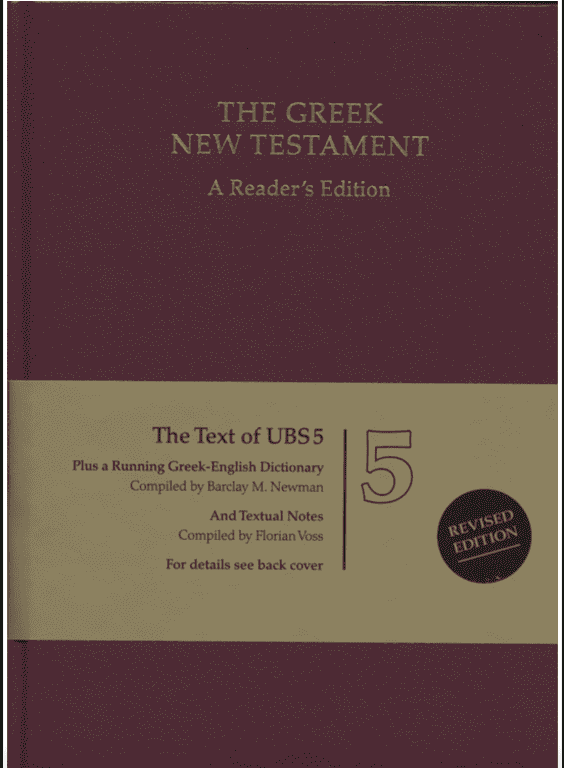
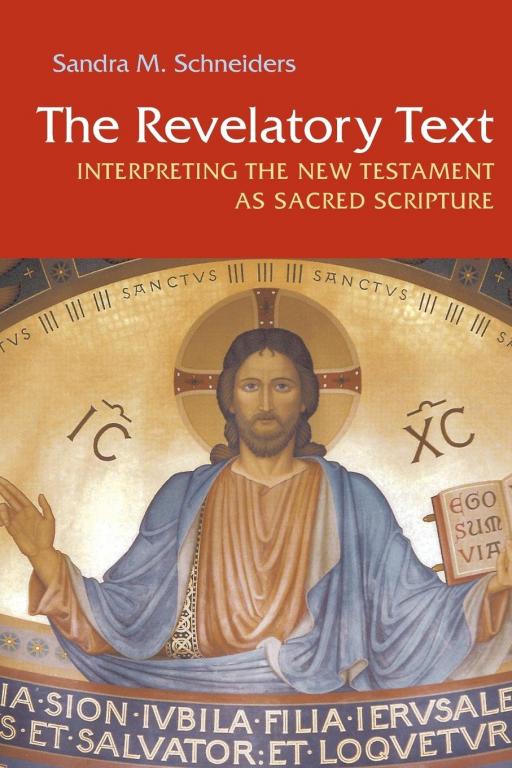 Scripture (Sandra Schneiders). A very rewarding Catholic approach to treating the NT as sacred and special revelation, while also paying full attention to the human element of Scripture. I have all my hermeneutics students read this book before writing their exegesis papers.
Scripture (Sandra Schneiders). A very rewarding Catholic approach to treating the NT as sacred and special revelation, while also paying full attention to the human element of Scripture. I have all my hermeneutics students read this book before writing their exegesis papers.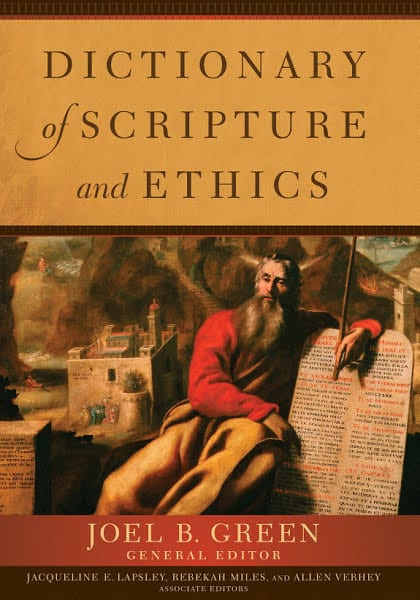 Dictionary of Scripture and Ethics (Baker). Another good thematic dictionary, I have a few entries in here.
Dictionary of Scripture and Ethics (Baker). Another good thematic dictionary, I have a few entries in here.
